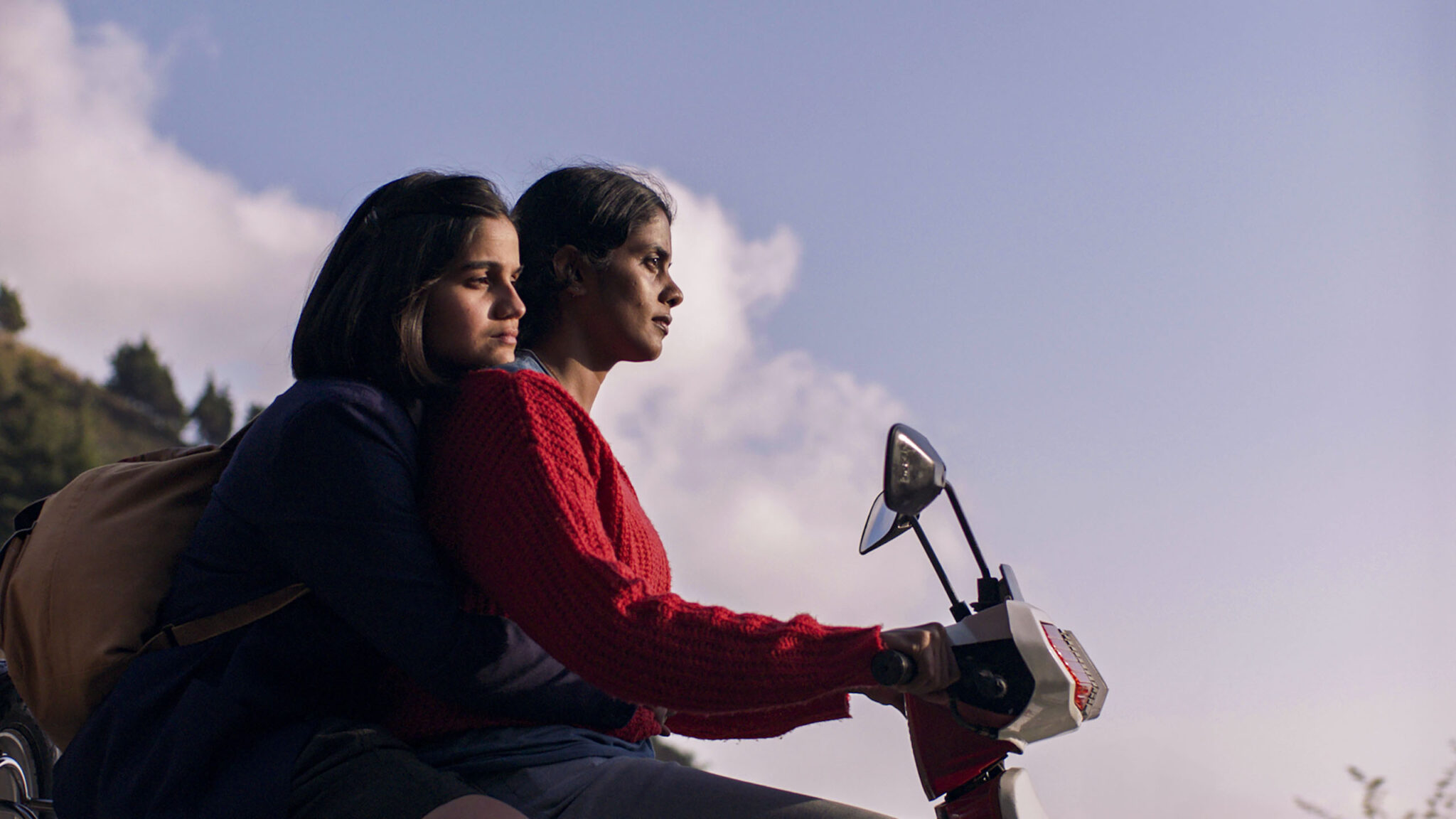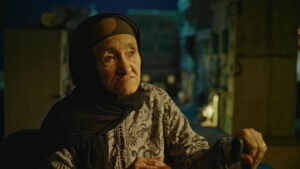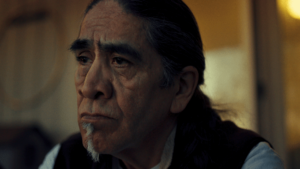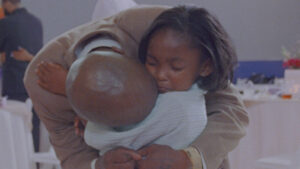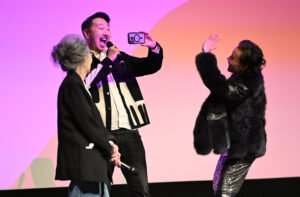By Lucy Spicer
One of the most exciting things about the Sundance Film Festival is having a front-row seat for the bright future of independent filmmaking. While we can learn a lot about the filmmakers from the 2024 Sundance Film Festival through the art that these storytellers share with us, there’s always more we can learn about them as people. This year, we decided to get to the bottom of those artistic wells with our ongoing series: Give Me the Backstory!
“Watch people, not movies.” This may seem like unusual advice to hear from a filmmaker, but according to Shuchi Talati, it’s the key to becoming a better cinematic storyteller. The writer-director’s debut feature, which won the Audience Award: World Cinema Dramatic at the 2024 Sundance Film Festival, came about because Talati observed the world around her and honed in on stories yet to be told. “The film was inspired by my girlfriends and their mothers in India,” says Talati. “I knew so many fierce and funny women who managed to subvert and circumvent social mores, but I didn’t ever see them on screen.”
Talati brought those characters to the screen in Girls Will Be Girls. The film stars Preeti Panigrahi — winner of the 2024 Festival’s World Cinema Dramatic Special Jury Award for Acting — as Mira, a 16-year-old girl attending a strict boarding school in the Himalayas. Sparks fly when she meets charismatic classmate Sri (Kesav Binoy Kiron), but Mira’s sexual awakening is stifled by interference from her mother, Anila. Played by Kani Kusruti, Anila is a young mother who had no opportunity for her own adolescent awakening, and witnessing her daughter’s blossoming romance stokes emotions that threaten to damage the pair’s relationship.
Learn more about Talati and Girls Will Be Girls below, including what the director loved about the casting process and the audience reflections she hopes to encourage with her film.
Describe who you want Girls Will Be Girls to reach.
I want women of all ages to feel seen by it. Also young people, or those who remember the turmoil of being young. And I hope the film will strike a chord with folks who’ve felt how pain, anger, and even a kind of hate, are a part of our deepest and most complicated loves. Especially with our parents or primary caregivers.
Why does this story need to be told now?
Because the friction between two generations of women that the film explores is so commonplace, but hard to name. When each generation of daughters carves out a bit more freedom than their mothers, how can the mothers not feel some envy, and grief, for freedoms not allowed to them?
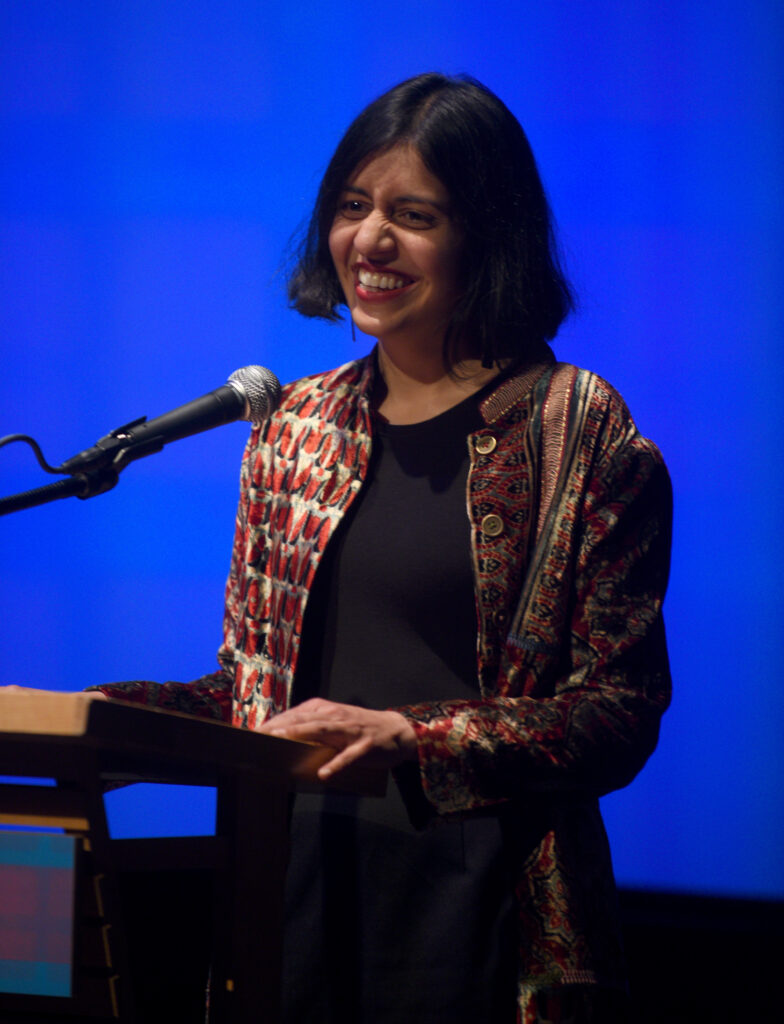
How do you want people to feel after they see your film?
I hope the film leaves people reflective, thinking about Mira and her mom. But also about their own lives and parents/caregivers they might have judged too harshly.
Tell us an anecdote about casting or working with your actors.
When we shot the scene where our lead masturbates using a stuffed teddy bear, we had a closed set with only women crew members. It turned into a girl fest where everyone had tips and tricks on how best to use the bear!
Your favorite part of making Girls Will Be Girls? Memories from the process?
I’m an introvert, so even though the shoot had many lovely moments with the cast and crew, my favorite parts of the filmmaking process were the one-on-one collaborations in pre- and post-production.
I loved the casting process even though I worried that we wouldn’t find our perfect cast in time. I am an actors’ director, and the audition process is so precious to me. You rediscover your own writing, and the film comes alive. We worked with an incredible casting director, Dilip Shankar, who cast Monsoon Wedding, and he was my trusted guide through the process. He intuitively knew what the film needed, and yet he always waited for me to speak before offering his opinion. And we soon realized that our opinions were almost always in sync. And when we first saw our three leads together, we just looked at each other in delight and disbelief!
I also loved working with our editor, Amrita David, who is based in Paris, which is where we edited most of the film. Our editing suite was in the 11th arrondissement, which is also Amrita’s neighborhood, and she knew all the best places to eat. We both grew up in India and love spicy food, so we decided spice was essential to our editing process. We had many excellent meals during our weeks together.
If you weren’t a filmmaker, what would you be doing?
I’d be a do-gooding lawyer. Or maybe a shrink.
One thing people don’t know about me is _____.
In my early 20s, I tried to keep a long-distance relationship alive by playing World of Warcraft together. It didn’t work.
What’s your favorite film that has come from the Sundance Institute or Festival?
So many. But in recent years, I’ve loved two documentaries from India — All That Breathes by Shaunak Sen and Writing with Fire by Rintu Thomas and Sushmit Ghosh.




